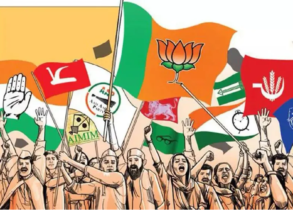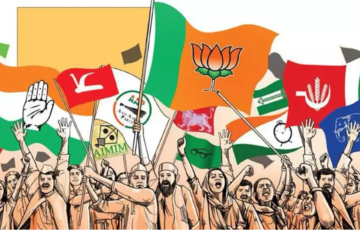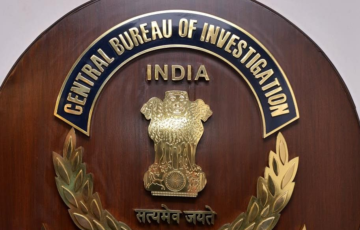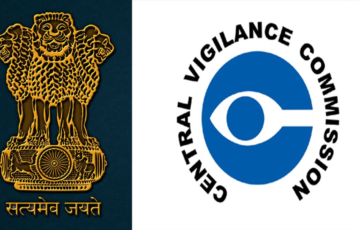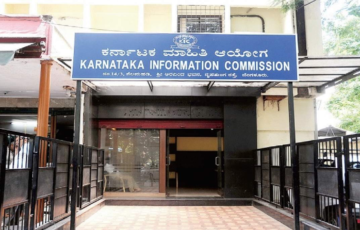REPRESENTATION OF THE PEOPLE ACT, 1951
Introduction
- The Representation of the People Act, 1951 is a seminal piece of legislation in India that serves as the cornerstone of the country’s electoral system. This act was enacted to regulate and govern various aspects of the electoral process in India, including the conduct of elections, the qualifications and disqualifications of candidates, the delimitation of constituencies, and the allocation of seats in the Parliament and state legislatures. With its detailed provisions and amendments over the years, the Representation of the People Act, 1951, plays a crucial role in upholding the principles of democracy, fairness, and transparency in the electoral process of the world’s largest democracy, India.
Historical Background
- The Representation of the People Act, 1951, was enacted by the Parliament of India in accordance with Article 327 of the Constitution of India. It was a landmark piece of legislation that laid down the framework for the conduct of elections in India. The Act was based on the recommendations of the Constituent Assembly of India, which had considered the best practices from around the world in drafting the electoral laws for India.
- The Representation of the People Act, 1951, was a significant improvement over the existing electoral laws in India. It introduced universal adult suffrage, direct elections, and secret ballot for the first time. The Act also established the Election Commission of India as an independent constitutional authority responsible for the conduct of elections in a free and fair manner.
- The passage of the Representation of the People Act, 1951, was a major milestone in the development of Indian democracy. It ensured that all citizens, regardless of their caste, religion, gender, or economic status, had an equal opportunity to participate in the electoral process. The Act also helped to strengthen the democratic institutions in India and to promote political stability and accountability.
- The historical background of the Representation of the People Act, 1951, can be traced back to the Indian independence movement. The Indian National Congress had always advocated for universal adult suffrage and direct elections. However, the British colonial government had resisted these demands. After independence, the Constituent Assembly of India decided to enshrine these principles in the Constitution of India. The Representation of the People Act, 1951, was enacted to implement these provisions.
- The Representation of the People Act, 1951, has been amended several times over the years to reflect changes in the political and social landscape of India. However, the core principles of universal adult suffrage, direct elections, and secret ballot have remained unchanged. The Act has played a vital role in the development of Indian democracy and has made it one of the most vibrant and inclusive democracies in the world.
Provision Under Representation of People Act, 1950
- The Representation of People Act, 1950, was the first comprehensive legislation governing the conduct of elections in India. It was enacted by the Parliament of India to implement the provisions of the Constitution of India related to elections. The Act was amended several times over the years to reflect changes in the political and social landscape of India.
- Some of the key provisions of the Representation of People Act, 1950, include:
- Qualifications and disqualifications for membership of Parliament and the state legislatures: The Act specifies the qualifications and disqualifications for membership of Parliament and the state legislatures. For example, a person must be a citizen of India and above the age of 25 to be eligible for membership of Parliament.
- Delimitation of constituencies: The Act provides for the delimitation of constituencies for the Lok Sabha and the state legislative assemblies. Delimitation is the process of dividing the country into electoral constituencies in such a way that each constituency has an approximately equal number of voters.
- Registration of voters: The Act provides for the registration of voters. All Indian citizens above the age of 18 are eligible to register as voters.
- Nomination and withdrawal of candidates: The Act lays down the procedure for nomination and withdrawal of candidates. A candidate must be nominated by a proposer and a seconder. A candidate can withdraw his candidature before the commencement of polling.
- Election procedure: The Act lays down the procedure for the conduct of elections. The polling day is fixed by the Election Commission of India. The polling is conducted in secret ballot.
- Counting of votes and declaration of results: The Act lays down the procedure for counting of votes and declaration of results. The candidate who secures the highest number of valid votes is declared elected.
- Electoral offences: The Act lists a number of electoral offences, such as impersonation of a voter, bribery, and undue influence. Persons who commit electoral offences are liable to be punished.
- The Representation of People Act, 1950, played a vital role in the development of Indian democracy. It helped to ensure that all citizens have an equal opportunity to participate in the electoral process and that their votes are counted accurately. The Act has been amended several times over the years to reflect changes in the political and social landscape of India.
Delimitation Commission
- The Delimitation Commission is an independent body that is responsible for the delimitation of constituencies for the Lok Sabha and the state legislative assemblies in India. Delimitation is the process of dividing the country into electoral constituencies in such a way that each constituency has an approximately equal number of voters.
- The Delimitation Commission is constituted by the President of India under the provisions of the Delimitation Commission Act. The Commission consists of a Chairperson, who is a retired Supreme Court Judge, and two members, who are retired Election Commissioners.
- The Delimitation Commission works in close consultation with the Election Commission of India. The Election Commission provides the Commission with the necessary data and assistance.
- The Delimitation Commission takes into account the following factors while delimiting constituencies:
- The population of the country
- The distribution of the population
- The physical features of the country, such as mountains and rivers
- The existing administrative boundaries
- The convenience of the voters
- The Delimitation Commission publishes a draft proposal of the delimited constituencies in the Gazette of India and the official gazettes of the states. The public is invited to submit objections and suggestions on the draft proposal. The Commission considers the objections and suggestions before finalizing the delimitation of constituencies.
- The final order of the Delimitation Commission is binding on the government. The government cannot modify the order of the Commission.
- The Delimitation Commission has been constituted four times in India: in 1952, 1963, 1973, and 2002. The Commission is currently in the process of delimiting constituencies for the Lok Sabha and the state legislative assemblies in Jammu and Kashmir.
- The Delimitation Commission plays an important role in ensuring that the electoral process in India is fair and democratic. By delimiting constituencies in such a way that each constituency has an approximately equal number of voters, the Commission helps to ensure that every vote has equal value.
Salient features of the Representation of People Act, 1951
- The salient features of the Representation of People Act, 1951, are as follows:
- Universal adult suffrage: All Indian citizens above the age of 18 are eligible to vote in elections.
- Direct elections: Members of Parliament and state assemblies are elected directly by the people.
- Secret ballot: Voters cast their votes in secret, which ensures that their votes are not influenced by anyone else.
- Independent Election Commission: The Election Commission of India is an independent constitutional authority that is responsible for conducting elections in a free, fair, and transparent manner.
- Anti-defection law: The Anti-Defection Law prevents elected members of Parliament and state assemblies from switching parties. This helps to ensure that governments are stable and that legislators are accountable to their constituents.
Conclusion
- The Representation of People Act, 1951, is a landmark piece of legislation that has played a vital role in the development of Indian democracy. It has helped to ensure that all citizens have an equal opportunity to participate in the electoral process and that their votes are counted accurately.
UPSC PREVIOUS YEAR QUESTIONS
1. Consider the following statements: (2020)
1. According to the Constitution of India a person who is eligible to vote can be made a minister in a State for six months even if he/she is not a member of the Legislature of that State
2. According to the Representation of People Act, 1951, a person convicted of a criminal offence and sentenced to imprisonment for five years is permanently disqualified from contesting an election even after his release from prison
Which of the statements given above is/are correct?
a) 1 only
b) 2 only
c) Both 1 and 2
d) Neither 1 nor 2



